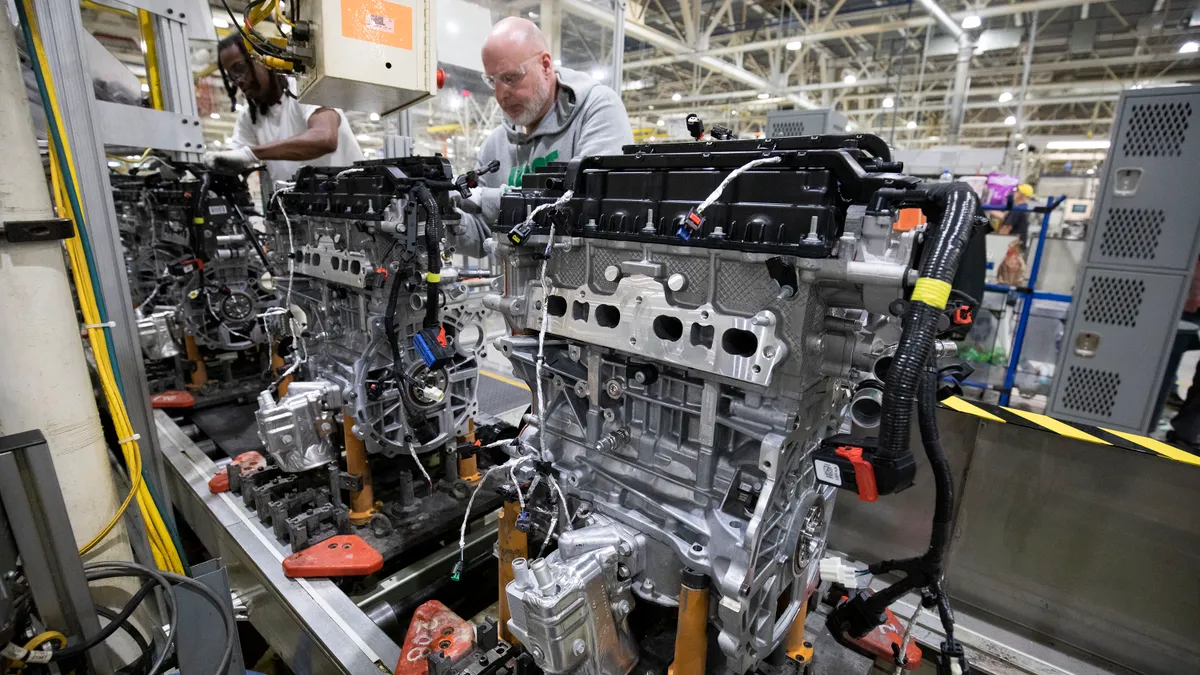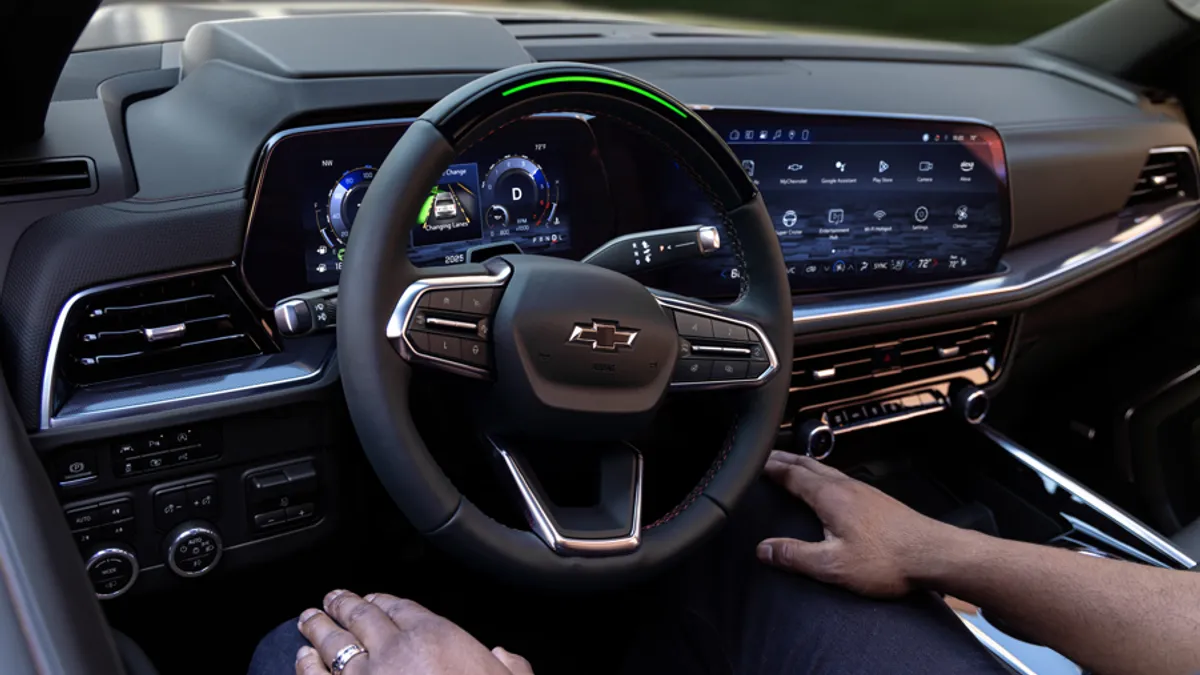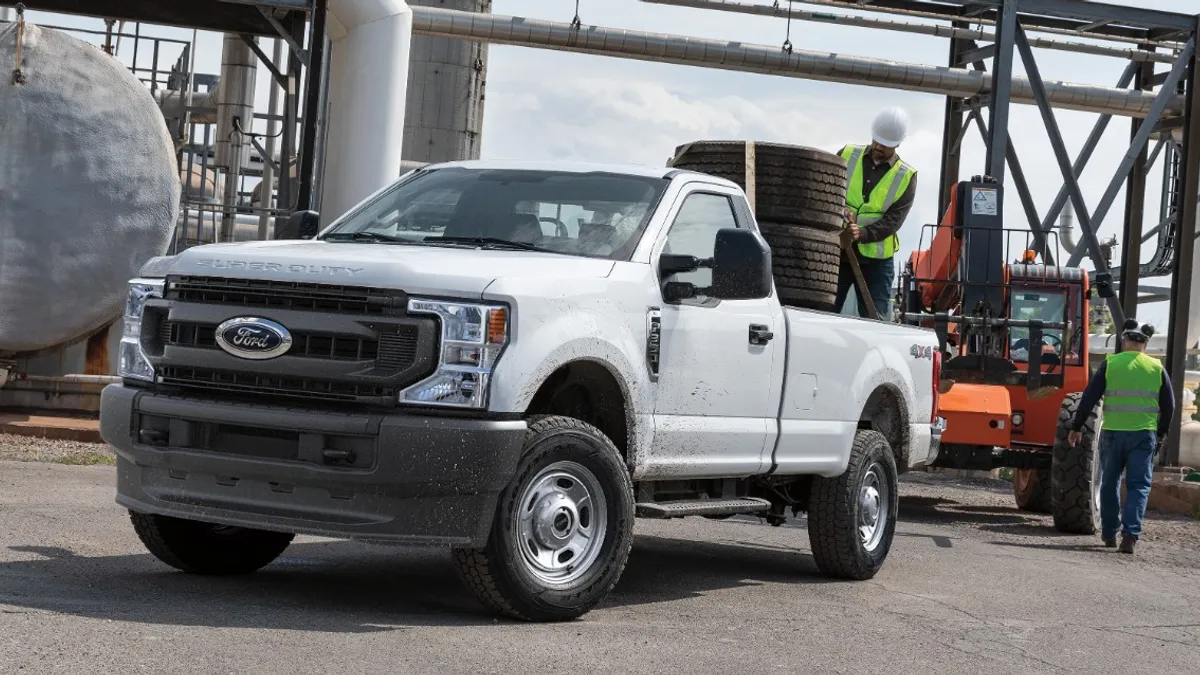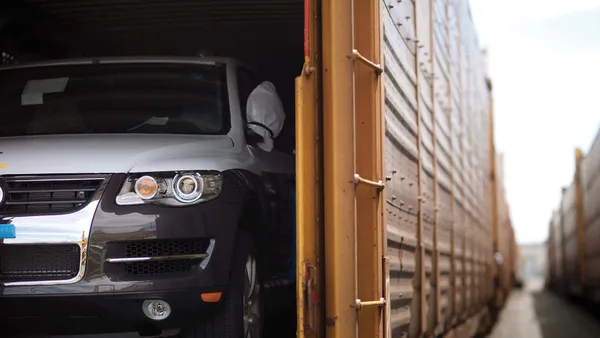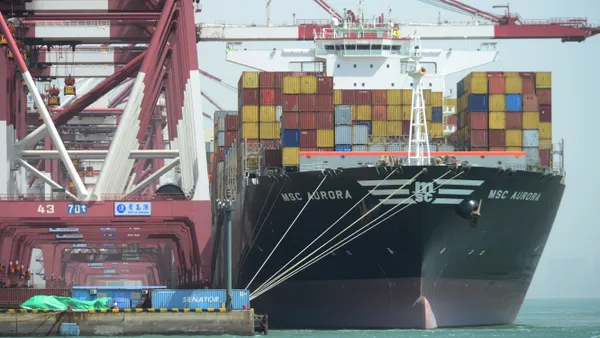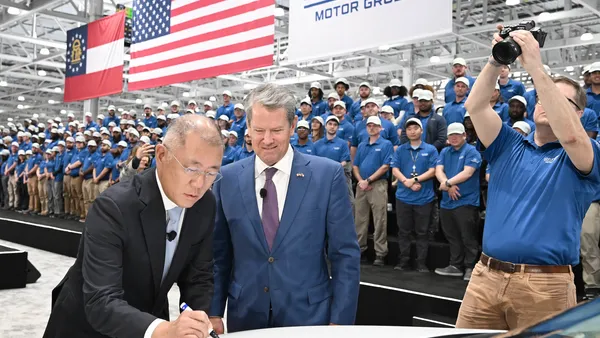Dive Brief:
- Stellantis and Belgium-based recycling company Galloo will establish a joint venture that will provide recycling services to manage end-of-life vehicles for Stellantis and other automakers, according to a press release.
- The joint venture will recover various vehicle parts for reuse, recycling and remanufacturing.
- The plans are part of Stellantis’ Dare Forward 2030 strategic plan, which lays out a goal of achieving net zero carbon by 2038.
Dive Insight:
The Stellantis-Galloo joint venture is one of several initiatives at automakers, including BMW and Volkswagen, to tackle end-of-life recycling for used vehicles and components. The Stellantis partnership will work with authorized facilities to collect ELVs from the last owner. The service is expected to launch later this year, with an initial focus on France, Belgium and Luxembourg before expanding across Europe.
“Making it easy for customers to recycle their ELVs is a crucial element to reduce the environmental impact of our vehicles,” said Alison Jones, Stellantis’ senior vice president for global circular economy, in a statement.
Galloo, which operates a network of 42 subsidiaries in Belgium, France and the Netherlands, recovers metals and certain types of industrial plastics for reuse. The company says that each year, it recycles around 1 million tons of steel and 35 tons of plastics to help companies lower their environmental impact.
The goal of the joint venture is to boost the automaker’s recycling revenues 10-fold and parts revenues by 4 times by 2030, compared to 2021 levels.
By 2030, Stellantis also aims to generate more than $2.1 billion (2 billion euro) from its recycling efforts. The program also supports the automaker’s goal of having 40% green materials in each new vehicle by the end of the decade.
In addition to Stellantis, BMW Group also announced plans in 2021 to reduce its vehicles’ carbon footprint through end-of-life recycling initiatives. The automaker aims to significantly increase the percentage of secondary material in its vehicles, including recycled steel, plastics and aluminum through 2030. BMW has set a target to increase the percentage of recycled materials in its new vehicles from around 30 to 50%.
The Stellantis joint venture is still subject to customary closing conditions, including regulatory approvals.



